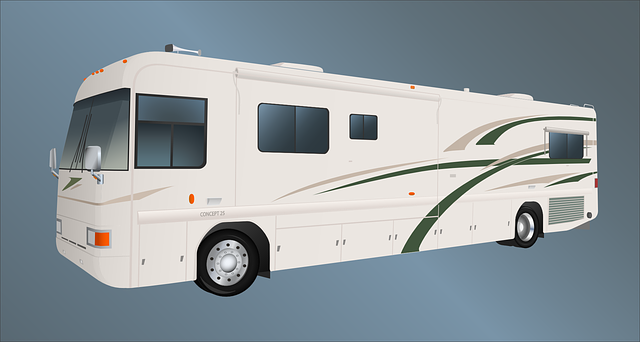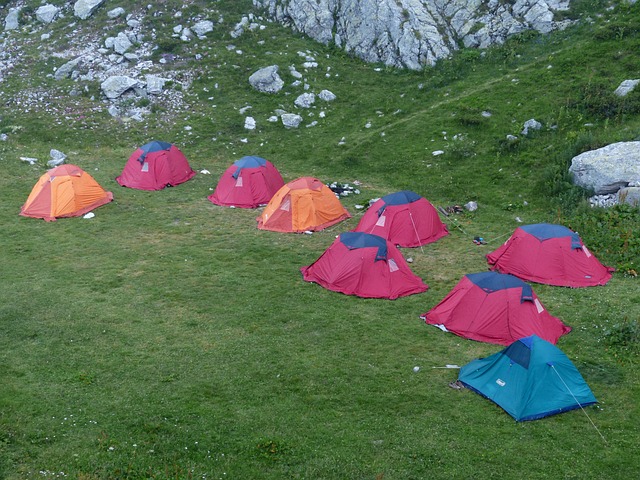When planning for long-term RV boondocking trips, it's crucial to select a high-quality, lightweight RV battery with sufficient capacity to meet your energy needs. Lithium or AGM batteries from reputable brands like Lifeline Marine & RV, Renogy, and Optima are excellent choices due to their high energy density, lighter weight, faster charging capabilities, and longer lifespans compared to traditional lead-acid options. These advanced batteries can be paired with a strategically designed solar panel setup to maximize your off-grid power autonomy. A general rule of thumb is to aim for 100 watts of solar panels for every 200 amp-hours you plan to use daily, ensuring that your battery remains charged and ready to support your RV's appliances, electronics, and comfort needs during your boondocking adventure. Integrating a battery management system (BMS) is also highly recommended to protect your investment and extend the life of your RV battery.
Embark on an enlightening journey into the world of powering your off-grid travels with our comprehensive guide to top lightweight RV batteries for boondocking. This article illuminates the features and benefits of various battery types, helping you select the optimal energy source for your self-contained adventures. From understanding the differences between lithium and lead-acid options to integrating solar power, we cover the essentials for prolonged boondocking trips. Discover the best brands, tips for maintenance, and insights from fellow travelers who have embraced the benefits of lightweight RV batteries. Ensure your adventures are powered by knowledge and choice, tailored to your specific needs in the great outdoors.
- Understanding Lightweight RV Batteries for Boondocking
- The Best Lightweight RV Battery Options for Self-Contained Travel
- Lithium vs. Lead-Acid: What's Right for Your Off-Grid Adventure?
- Top Brands of Lightweight RV Batteries for Long-Term Boondocking
- Battery Capacity and Efficiency: How to Choose Based on Your Needs
- Innovative Features in Modern Lightweight RV Batteries
- The Importance of Solar Panel Integration with Your RV Battery System
Understanding Lightweight RV Batteries for Boondocking

When embarking on a boondocking adventure in your RV, selecting the right battery is crucial for ensuring that you have a reliable power source for all your off-grid needs. Lightweight RV batteries are designed to provide energy while maintaining a low profile, which is essential for RVers who prioritize fuel efficiency and vehicle payload capacity. These batteries typically use advanced lead-acid, AGM (Absorbent Glass Mat), or lithium technology, each offering unique advantages.
For instance, AGM batteries are spill-proof and maintain a steady performance across a wide range of temperatures. They are also more resistant to shocks and vibrations compared to traditional lead-acid batteries, making them an excellent choice for the rugged demands of boondocking. On the other hand, lithium RV batteries are even lighter and have a higher energy density, which translates to longer life cycles and less weight to carry. They also charge faster and can handle more deep discharge cycles without compromising their lifespan. When choosing an rv battery for your boondocking setup, consider factors like the capacity, power output, lifecycle expectations, and compatibility with your RV’s existing electrical system. Properly selecting and maintaining your lightweight RV battery will ensure you have a dependable energy source for all your camping activities, from powering refrigerators to charging devices, allowing you to fully enjoy the solitude of boondocking.
The Best Lightweight RV Battery Options for Self-Contained Travel

When embarking on boondocking adventures, selecting the right RV battery is crucial for uninterrupted power supply and comfort. Lightweight options are particularly favored in self-contained travel scenarios, where every pound saved contributes to increased fuel efficiency and easier maneuverability. Among the top choices for RV batteries that strike a balance between capacity and weight are lithium-ion models. These advanced batteries provide a higher energy density compared to traditional lead-acid batteries, offering more power without the added bulk. For instance, lithium iron phosphate (LiFePO4) batteries have gained popularity due to their longevity and safety. They can handle a wide range of temperatures and are less prone to the memory effect, making them an ideal solution for full-time RVers who demand both performance and durability from their power sources.
Another excellent lightweight option is the AGM (Absorbent Glass Mat) battery. These batteries are spillproof and maintenance-free, with a robust construction that makes them suitable for all types of RV travel. They offer a reliable alternative to traditional lead-acid batteries, with a longer lifespan and better performance in deep discharge scenarios, which often occur during extended off-grid excursions. When selecting an AGM battery, consider its reserve capacity and cold cranking amps, as these factors will determine how well it performs under varying conditions. For those seeking the ultimate in lightweight power solutions, lithium batteries, such as lithium ion (Li-ion) or lithium polymer (LiPo), are a premium choice. These cutting-edge batteries offer unmatched energy density and can be significantly lighter than traditional options, making them perfect for RVers who prioritize the agility and efficiency of their RV setup. Regardless of the type chosen, ensuring that the battery is properly sized for your energy needs and that it includes a reliable charging system will guarantee a seamless and enjoyable boondocking experience.
Lithium vs. Lead-Acid: What's Right for Your Off-Grid Adventure?

When embarking on boondocking adventures, selecting the right RV battery is paramount to ensure your off-grid experience is both seamless and sustainable. Lithium batteries have emerged as a popular choice for RVers, offering significant advantages over traditional lead-acid batteries. For instance, lithium RV batteries are much lighter, which is a crucial consideration when you’re constantly on the move. Their high energy density means they can store more power than their lead-acid counterparts, delivering longer life cycles and maintaining efficiency at various charge levels. Lithium batteries also have a higher discharge rate, allowing for the use of more stored power without compromising the battery’s health over time. Additionally, their ability to handle a wide range of temperatures makes them reliable in diverse climates, which is often less predictable during boondocking trips.
On the other hand, lead-acid RV batteries have been the staple for many years and are well understood by both manufacturers and users. They offer a reliable performance history and tend to be more budget-friendly upfront. However, their weight can be a significant drawback when every pound counts in your setup. Also, their memory effect, where the battery can ‘remember’ a lesser capacity if only partially charged regularly, can lead to reduced lifetime capacity. This, combined with their lower energy density and poor performance in colder temperatures, means they might not be the best fit for those who prioritize longevity and mobility during their off-grid RV adventures. When choosing between lithium and lead-acid RV batteries for your boondocking setup, consider factors like weight, power requirements, budget, and temperature extremes to determine which type will serve you best in the long run.
Top Brands of Lightweight RV Batteries for Long-Term Boondocking

When embarking on long-term boondocking adventures, the type of RV battery you choose can significantly impact your experience. Lightweight RV batteries are a must for those who prioritize fuel efficiency and ease of maneuverability, especially when navigating rough terrains off the grid. Top brands in this space offer lithium or AGM (Absorbent Glass Mat) options that provide reliable power without the heft of traditional lead-acid batteries. Lifeline Marine & RV batteries, for instance, are known for their durability and deep cycle capabilities, making them suitable for the demands of extended off-grid stays. Renogy, another leading brand, offers lithium RV batteries that boast a high energy density, meaning you can power your RV’s essential appliances and electronics without worrying about weight limitations. Their batteries also feature built-in battery management systems (BMS) for optimal safety and performance. For those who prefer AGM technology, Optima provides robust options that maintain their charge well in various climates, ensuring your power supply remains consistent even during long-term boondocking trips. These top brands prioritize the needs of RVers, offering batteries that provide ample power with a minimal footprint, which is crucial for maintaining the autonomy and comfort needed on these extended excursions.
Battery Capacity and Efficiency: How to Choose Based on Your Needs

When selecting a lightweight RV battery for your boondocking adventures, understanding battery capacity and efficiency is paramount to ensure you have reliable power for an extended period. The capacity of an RV battery, often measured in ampere-hours (Ah), dictates how much energy the battery can store. For those who plan on extended off-grid excursions, opting for a high-capacity battery with a rating of 100 Ah or more is advisable, as it will provide a greater reserve of power to support your needs. However, it’s not just about the numbers; efficiency plays a crucial role. Lithium RV batteries, for example, boast higher energy density and are significantly lighter than traditional lead-acid batteries, making them an excellent choice for lightweight applications. They also charge faster and can withstand more charge/discharge cycles, which translates to a longer lifespan and more consistent performance over time. When choosing based on your needs, consider factors like the power draw of your appliances, how many devices you plan to use simultaneously, and the length of time you’ll be away from a charging source. This will guide you in selecting the right size and type of RV battery to match your energy consumption patterns and ensure you have sufficient power for all your boondocking needs. Additionally, look for batteries with built-in battery management systems (BMS) that protect against overcharging and deep discharge, enhancing both safety and longevity. With careful consideration of these factors, an RV battery can be a dependable energy source, allowing you to fully embrace the boondocking lifestyle without compromise.
Innovative Features in Modern Lightweight RV Batteries

Modern lightweight RV batteries have seen significant advancements, integrating innovative features that enhance their performance and longevity for boondocking adventures. Lithium-based batteries, such as lithium iron phosphate (LiFePO4) and lithium ion (Li-ion) options, are becoming increasingly popular among RV owners due to their high energy density, which allows them to power appliances and electronics for extended periods without the need for frequent recharging. These batteries are also notably lighter and more compact than traditional lead-acid models, making them ideal for the weight-sensitive environments of RVs.
Another standout feature in modern lightweight RV batteries is their ability to handle deep discharge cycles. This capability ensures that users can deplete the battery by up to 80% without damaging it, a significant advantage over older types. Additionally, many of these advanced batteries come with built-in battery management systems (BMS) that protect against overcharging, over-discharging, and overheating, which are common concerns when using RV batteries in remote locations. This technology not only extends the lifespan of the battery but also safeguards the RV’s electrical system, providing peace of mind for adventurers who venture off the grid. Integrated solar charge controllers are also a common feature, allowing for seamless renewable energy integration to keep the batteries charged during extended stays in boondocking scenarios. These innovations make modern lightweight RV batteries not just an upgrade over their predecessors but a critical component of a sustainable and efficient power solution for RVers.
The Importance of Solar Panel Integration with Your RV Battery System

When embarking on boondocking adventures, the integration of solar panels with your RV battery system becomes a pivotal aspect for sustaining off-grid power. A well-designed solar setup not only augments your RV battery’s capacity but also ensures its longevity by minimizing the frequency and depth of discharge that can lead to battery degradation. Solar panels, when paired with lightweight RV batteries like lithium or AGM options, create a robust energy solution that can power essential appliances, lighting, and electronics. The synergy between solar energy harvesting and the storage capabilities of RV batteries is crucial for self-sufficient travelers who wish to maintain their comfort and connectivity while far from traditional power sources.
Choosing the right solar panel system to complement your RV battery is a decision that hinges on several factors, including the size of your battery, your energy consumption habits, and the climatic conditions you’ll encounter. Typically, a solar array of around 100 watts per day for every 200 amp-hours needed per day is recommended as a starting point. This ratio ensures that your RV battery remains charged, especially during extended periods of sunlight, which are essential for maintaining power levels. The integration of solar panels with RV batteries is not just about efficiency; it’s about creating a sustainable and eco-friendly energy solution that enhances the boondocking experience without compromising on the essential conveniences modern RV batteries can provide.
When venturing into the great outdoors with a recreational vehicle, selecting the right lightweight RV battery is paramount for an uninterrupted boondocking experience. This article has delved into the essential aspects of choosing the best battery options tailored for self-contained travel. We’ve compared lithium and lead-acid batteries, highlighting their strengths and suitability for off-grid adventures, and introduced top brands that cater to extended periods away from traditional power sources. Understanding battery capacity and efficiency based on individual needs is crucial, as is the integration of solar panels to enhance your system’s sustainability. With these insights, RV enthusiasts can make informed decisions, ensuring their journey remains powered and their experiences unforgettable. Remember to consider the RV battery’s weight, runtime, and compatibility with your setup for a seamless boondocking adventure.
